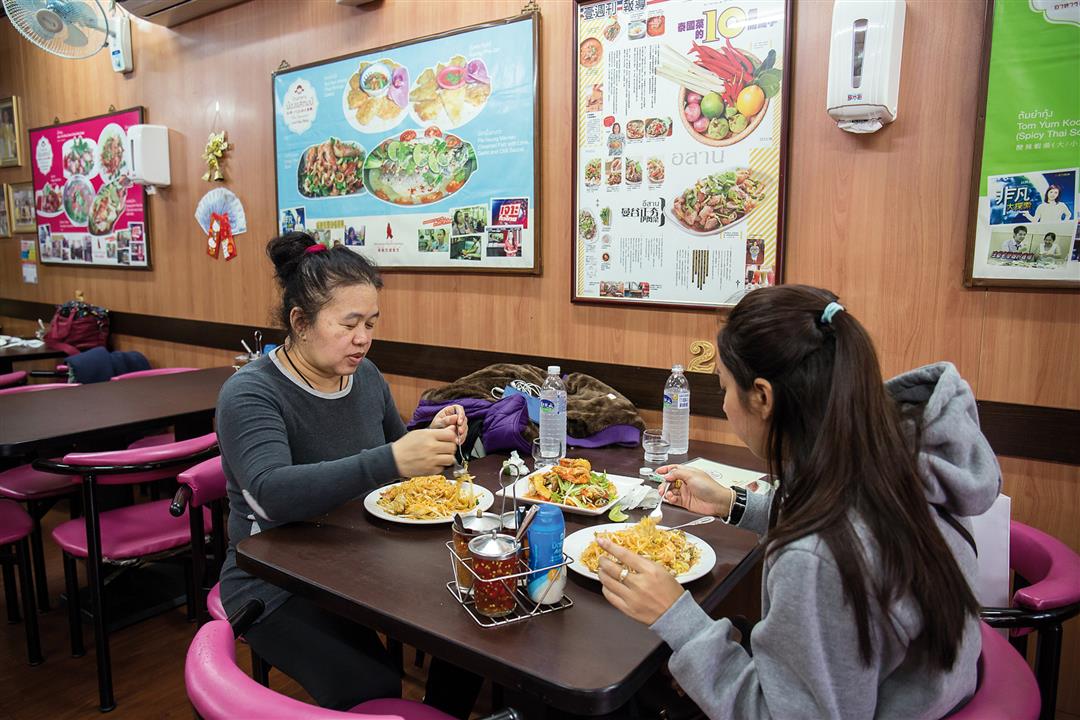Arriving in Taiwan at 19
Born in Bangkok to a large family that struggled to feed its many mouths, Xiulan was the fifth sibling and a smart and obedient child. Her mother, who had seven children all told, died when Xiulan was just five. Her father, a plumber and electrician, had to bear the burden of juggling his career with caring for his children.
“When I was young, Papa would say that eating water spinach would brighten one’s eyes, so he gave us it every day.” When Zhao speaks about her childhood, there is a bittersweet quality to it, a sense of sorrow amid the nostalgia. Yet, however poor the family was, her father made sure that the children got the nutrition they needed to grow. “Every day, when I would open my lunchbox, I would find an egg. What’s more, my father always found ways to mix things up to create some variety.” She thus came to revere her father’s cooking.
When she was 19, Zhao came to Taiwan with her maternal aunt. They lived in Tamsui and worked in a bread factory. “Money was easy to make in Taiwan. When I lived in Bangkok, I earned 1800 Baht a month, but once I moved to Taiwan, I was making NT$10,800 a month.” Recalling her work situation when she first arrived in Taiwan, Zhao’s eyes can’t help but brighten. “The first time I went back to Thailand, I came loaded with gifts and placed 7,500 Baht in my father’s hand.” The expression of pride on her father’s face is still vividly etched in her mind.
But the winters in northern Taiwan made Zhao shiver, accustomed as she was to four summer-like seasons. Within a year, she had returned to Thailand. After two months back home, however, her aunt in Taiwan grew ill, and she came back to look after her. “It was as if I was destined to come to Taiwan.” Some six months later, she married a Taiwanese man who was more than 20 years her elder.
“He was a good person and treated me well.” But with their age disparity and the language barrier, as well as different customs and habits, they ended up divorcing.
After the marriage ended, Zhao, with the help of her friends, moved to Taoyuan’s Guishan, where she operated a general store. At 28, she remarried. “I like children but I wasn’t successful in my attempts to have them.” For her dreams of motherhood, Zhao spent several hundred thousand NT dollars on in-vitro fertilization procedures. Sadly, all three attempts proved fruitless.

Downhome Thai food soothes the cravings of expatriate workers.